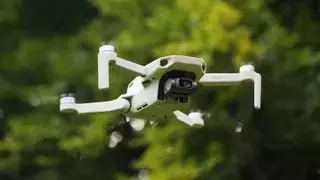The fate of DJI, the world’s leading drone manufacturer, hangs in a delicate balance as it faces a pivotal year to demonstrate its commitment to security. With the passage of the National Defense Authorization Act (NDAA), the company has been given a temporary reprieve from an outright ban on imports into the United States. However, this grace period comes with stringent conditions that could reshape the future of drone technology in America.
Securing Tomorrow: DJI's Critical Year Under Scrutiny
A New Era for Drone Regulation
The landscape of drone regulation in the United States is undergoing significant changes. The National Defense Authorization Act (NDAA) now mandates a one-year review period for companies like DJI to prove their products pose no national security risks. This development marks a turning point in how foreign-made drones are perceived and managed within the U.S. market. While the NDAA has not included provisions from the Countering CCP Drones Act, which sought to block all DJI products, the scrutiny remains intense.DJI's dominance in the global drone market is undeniable, holding seven of the top ten spots for the best consumer drones. Despite this success, the company must now navigate a complex regulatory environment. The NDAA stipulates that if DJI fails to satisfy the requirements set by an unspecified national security agency, its products will be banned from operating on U.S. networks. This potential prohibition would prevent the Federal Communications Commission (FCC) from authorizing the internal radios of DJI devices, effectively halting imports.The Challenges Ahead for DJI
As a Chinese company, DJI has faced heightened scrutiny from U.S. lawmakers who express concerns over potential ties to the Chinese government. These suspicions have fueled debates about the security implications of using DJI's drones. In response, DJI has maintained its stance that it welcomes the opportunity to showcase its privacy controls and security features. The company argues that it should not be unfairly singled out among other international firms.The absence of a designated agency to conduct the required assessment poses a significant challenge. If no agency steps forward, DJI believes it will face automatic prohibition. This scenario underscores the critical importance of the next 12 months for DJI's operations in the United States. The company's ability to provide transparent and robust security measures will be crucial in maintaining its market presence.Implications for the Drone Industry
The outcome of DJI's one-year review will have far-reaching implications for the entire drone industry. Competitors like Autel Robotics also face similar scrutiny, highlighting the broader impact on foreign manufacturers. For consumers and businesses reliant on DJI's advanced technology, the coming year will be marked by uncertainty. Those invested in DJI's products may need to explore alternative options or adapt to new regulations.Moreover, the NDAA's passage through both the House of Representatives and the Senate signals bipartisan support for enhanced security measures. President Biden's expected signature on the act will cement these changes into law. As the political landscape shifts, particularly with the incoming administration under President-elect Trump, the trajectory of drone regulation remains fluid. Stakeholders in the drone sector must stay vigilant and prepared for any policy adjustments that could emerge.Looking Forward: A Time of Transformation
The coming year represents a transformative period for DJI and the drone industry as a whole. The company's efforts to meet stringent security standards will determine its future in the U.S. market. DJI's proactive approach to addressing concerns and demonstrating its commitment to privacy and security will be essential. By engaging transparently with U.S. authorities and showcasing the robustness of its technology, DJI aims to solidify its position as a trusted leader in the drone market.In conclusion, the next 12 months will be pivotal for DJI as it seeks to navigate the complexities of U.S. regulations. The outcome will not only affect DJI but also influence the broader drone ecosystem, shaping the future of aerial technology in America.You May Like

